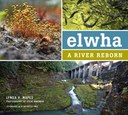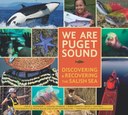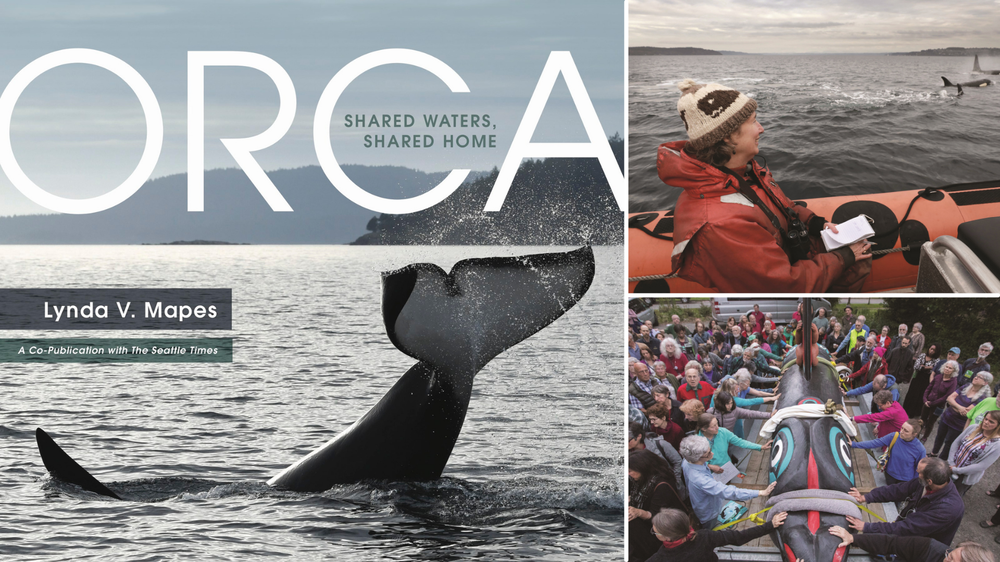
Braided River author Lynda V. Mapes has traveled across the West Coast to give voice to the region’s orca whales, iconic to the Pacific Northwest’s beautiful—but ecologically imperiled—marine ecosystem. In this excerpt, she travels to OrcaLab in British Columbia, where passionate and determined volunteers are led by founder Paul Spong. Located on Cracroft Point, above Johnstone Strait in British Columbia, they have been documenting the daily lives of the more robust northern resident orca pods since 1970.
Lynda’s new book Orca: Shared Waters, Shared Home launches on June 1, 6pm PST with an online event co-hosted by The Seattle Public Library and Elliott Bay Books. Register for the launch event or pre-order your copy of the book today! This book is published by Braided River, the nonprofit conservation imprint of Mountaineers Books.
***
We went back outside, and Spong showed me around the grounds, hiking through the woods behind OrcaLab along a footpath subtle as an animal trail in the soft, mossy understory. Ravens’ voices echoed in the quiet. Ferns reached shoulder high, and moss padded the rocks. Then all of a sudden we saw it, looming in the gloom: the Grandmother Cedar. At least one thousand years old, its vastness disappeared into the sky.
We walked around the tree, a journey that took many steps. Spong and I sat on a log, gazing at the tree, so large it seemed to make its own verdant world. The quiet was deep and soft as the duff underneath its branches, where tiny shoots and new life sprouted. Under the cedar’s vast canopy, even the light seemed green, A small board was tucked inside a hollow at the tree’s vast, spreading base, carved with the words Blessed Be He Who Leaves These Trees.
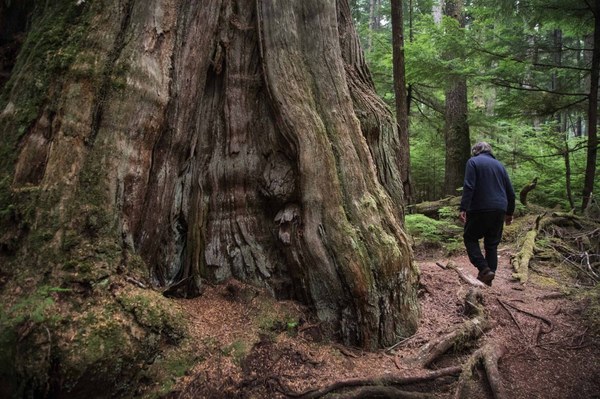 Photo by Steve Ringman, The Seattle Times.
Photo by Steve Ringman, The Seattle Times.
It was left from a decades-long fight, Spong said, as First Nations defenders of this land worked to save this tree and this forest from logging. Today Hanson Island is an ecological preserve, managed by the Namgis people.
An Eagle’s-Eye View
The next day, Spong motored us down the coast to OrcaLab’s most remote outpost, at Cracroft Point. There, underwater cameras in fixed locations also discreetly record orcas in the wild. A shack atop a tiny platform on the point is the base camp for volunteers who track the comings and goings of the orcas and the human activity around them, especially in the Robson Bight sanctuary, just across the waters of Johnstone Strait.
At the shack, windmills and solar panels provide electrical power for the outpost. Volunteers Megan Hockin-Bennett and Shariana Manning had come halfway around the world from London to staff this little platform above the vast blue sea. It was their fourth year sharing this shack together for a stint with the orcas, sleeping on simple cots and cooking on a tiny stove in a galley no bigger than a card table. Hockin-Bennett ducked inside to make coffee and brought it outside to enjoy while watching for orcas.
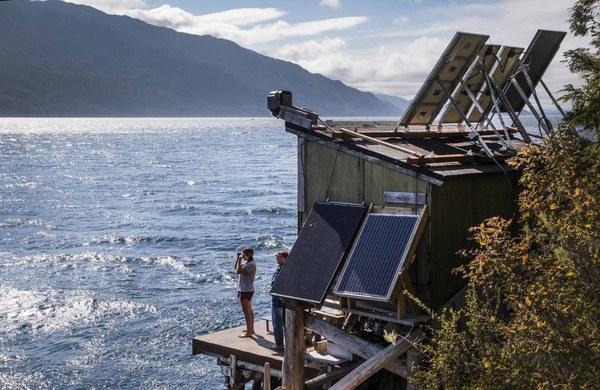 Photo by Steve Ringman, The Seattle Times.
Photo by Steve Ringman, The Seattle Times.
We didn’t have long to wait. Within moments, black dorsals slashed through the shine of sun on the water. The two volunteers abandoned their coffee and ran to spotting scopes to record which animals they were seeing, and their behavior, as best they could tell. The orcas zigged and zagged across the strait in a way that they had not seen before. I marveled at the volunteers’ commitment, camping on this bit of plywood out in the middle of nowhere to build, day by day, just a bit more of the record of the known lives of these orcas, in full knowledge that what they see from the surface, in the limited time they are with them, is just a glimpse of the orcas’ wild lives.
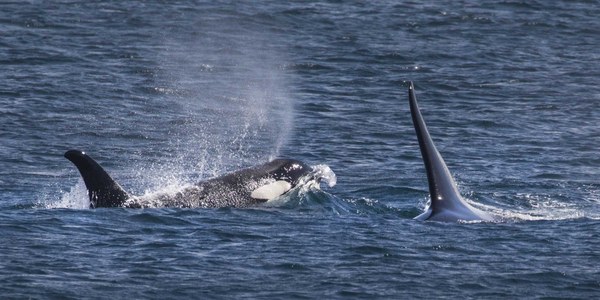 Photo by Steve Ringman, The Seattle Times.
Photo by Steve Ringman, The Seattle Times.
The two were enthralled that summer watching a new baby with its mother among the northern residents. “To see a new generation, and everything she is teaching this baby; everything they do is based on teaching, from grandmother to mother,” Manning said. “The matriarchs know where to go to get fish, where to rub on the beaches.”
A collection of sea glass and the delicate dome of an urchin’s shell, gathered over the years by volunteers, were placed on a sun-bleached plank by the viewing platform. An eagle cruised overhead, and low clouds spooled like skeins of wool through the almost black green of the forest across the water.
I went back inside the tiny cabin, enchanted as I looked around their world within a world, so snug and tidy with everything in its place, like the cabin of a boat. It was easy to imagine them tucked in here in their nest amid the blue waves and sky, day after day, keeping vigil with the whales.
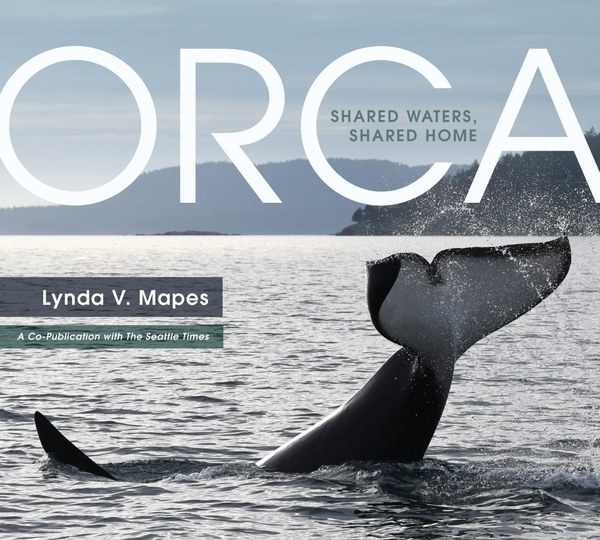 Cover photo by Dave Ellifrit, Center for Whale Research.
Cover photo by Dave Ellifrit, Center for Whale Research.
About Author Lynda V. Mapes
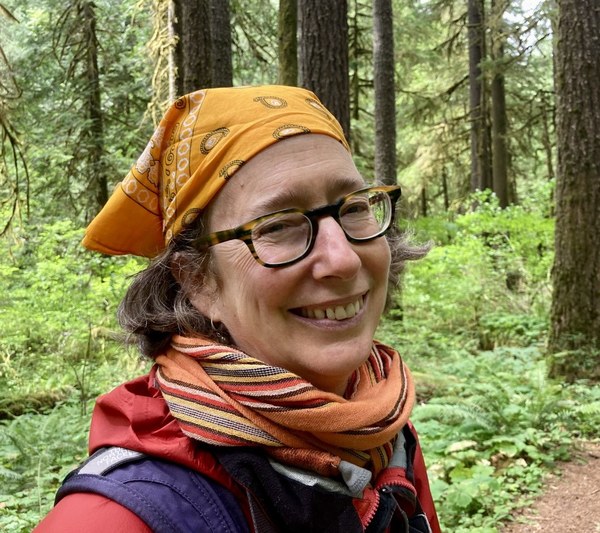 In 2018, award-winning Seattle Times environment reporter Lynda V. Mapes brought to world-wide audiences the story of Tahlequah, the mother orca whale who circled the Salish Sea for more than 1,000 miles over 17 days with her pod while clinging to the dead newborn calf she would not give up.
In 2018, award-winning Seattle Times environment reporter Lynda V. Mapes brought to world-wide audiences the story of Tahlequah, the mother orca whale who circled the Salish Sea for more than 1,000 miles over 17 days with her pod while clinging to the dead newborn calf she would not give up.
Now readers can continue their journey with our local orca populations with her most recent title, Orca: Shared Waters, Shared Home, co-published by Mountaineers Books conservation imprint Braided River and The Seattle Times. Lynda’s other titles include: Breaking Ground, The Lower Elwha Klallam Tribe and the Unearthing of Tse-whit-zen Village; Elwha, A River Reborn; Witness Tree, Seasons of Change with a Century Old Oak.
And since you're here...
Orca: Shared Waters, Shared Home was brought to life through the generous support of over 100 individuals and organizations who are inspired by the non-profit publishing program of Mountaineers Books and Braided River and the important outcomes their conservation impact campaigns make possible. Funding allows us to continue to publish books with a mission—whether it is protecting wild places or capturing deeply inspiring histories and outdoor expeditions and adventures. Philanthropic gifts sustain us beyond what sales alone can support to create community events, exhibits, media, and meaningful collaborations with our nonprofit partners—all based upon our books, and further enhanced with the engagement of our passionate and knowledgeable authors.
Make a gift to Braided River's publishing program today and bring beautiful, impactful, inspiring books like Orca: Shared Waters, Shared Home to life.
 Erika Lundahl
Erika Lundahl

